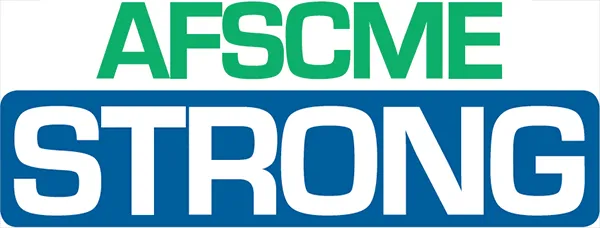About Us
These are challenging times for working families in south Florida and union members in particular are facing a barrage of concerted attacks to undermine our job security, wages and benefits.

But Local 199 members know what it means to be AFSCME Strong. With our new contract we won back tens of millions of dollars in pay concessions, including flex pay, premium pay, and holiday pay that was relinquished during the economic crisis brought on by billionaires and special interests. By standing strong we won a wage increase, ended furloughs and continued quality health coverage for us and our families.
Now we have to build on our success by staying AFSCME Strong. Local 199 has a plan and vision to build on this success. A plan to protect the future and financial security of members, grow our communities and become a union that connects all public service workers. A union that has power in the workplace, at the bargaining table and with elected leaders. A union that 100% of our coworkers will want to be part of.
And we need you. AFSCME Strong is only as strong as you are. The billionaires and special interests behind these attacks are strong but we can be stronger.
Call us at (305) 805-1075 or email afscmelocal199@gmail.com and ask how you can be part of our bold vision.
FREQUENTLY ASKED QUESTIONS
Q: Who is AFSCME Local 199?
A: We are the American Federation of State, County, and Municipal Employees union. We are one of the largest unions in the AFL-CIO. AFSCME represents public service workers. In Florida, AFSCME Local 199 represents 9,000 Miami-Dade County employees covering 26 departments.
Q: How does a union work?
A: A union is a democratic organization in the workplace that gives employees a voice on the job. By joining together and negotiating a union contract employees are better able to improve their working conditions, pay, and benefits.
Q: Who runs the union? I've heard that the union is a bunch of outsiders - a third party.
A: You run your own union.You decide what sort of improvements you want in your pay, benefits, and working conditions. You elect a negotiating committee, vote on contracts, and elect officers. The only time employees have a real voice in a workplace is when they have a union.
Q: How much are dues and will I have to pay an initiation fee?
A: Dues are $22 per pay period and there is no initiation fee.
Q: Where do Union dues go?
A: Dues help pay for the cost of organizing workers to win union recognition and a union contract. Once workers win a contract union dues help pay for the cost of representation, contract enforcement and continued organizing to help keep the union strong, protect the gains already won and win new improvements for the members.
Q: Can I get fired for supporting the union or for attending a union meeting?
A: The right to have a union, support a union, or engage in union activity is protected by law. With a union contract you are protected and cannot be fired without just cause.
Q: What benefits can the union guarantee?
A: The only thing guaranteed is that things will stay the same or get worse if we don't come together and act. The fact is that union employees have better pay, benefits and working conditions than non-union employees. That's why workers join unions.
Q: What about union corruption and dishonesty?
A: The vast majority of unions and union officials (your coworkers) are honest - but it is not a perfect world and people are not perfect either. The difference between unions and most other institutions is that union members have the ability to vote out corrupt union officials.
Q: When does our contract expire?
A: AFSCME Local 199's contract with the County will expire September 30, 2017.
Q: How do contract negotiations work?
A: Members will elect a bargaining team that is representative of the 9,000 person bargaining unit. Members will complete a bargaining survey to indicate which improvements they would like to see made regarding working conditions, pay, and benefits. The results of the bargaining survey will provide the blueprint for the proposal that is presented to the County. The County and the bargaining team will negotiate until a tentative agreement is reached. The members will then have to ratify, or vote, on the tentative agreement. If a majority votes yes, the contract and the improvements will go into effect immediately. Your employer is obligated by law to bargain "in good faith" - but what really makes them serious about bargaining is the degree to which workers stick together.
Q: How do we win a strong contract with real improvements?
A: The first step to negotiating a strong contract is by having a majority membership. During contract negotiations, if you have 30% membership, you're going to get 30% of what you asked for. You also need active members who take on leadership roles by becoming stewards or become a part of a Member Action Team that is responsible for sharing information, increasing communication, and mobilizing the membership.
